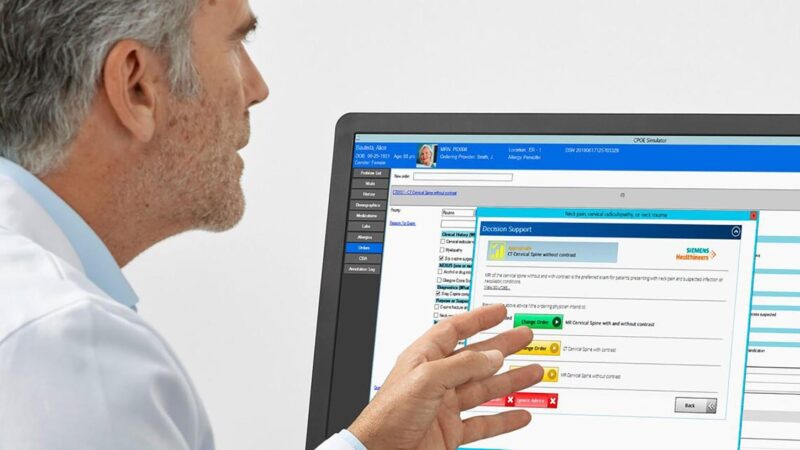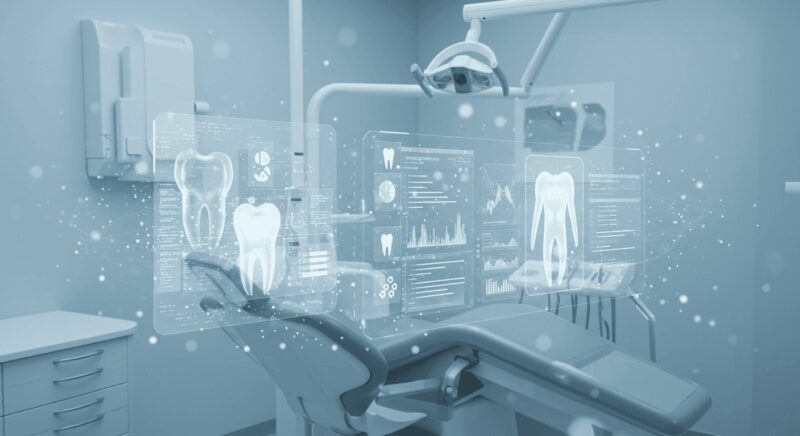The rhythm of a dental clinic is rarely still. Between patient check-ins, treatment planning, and digital imaging, every minute counts.
That’s where a reliable Clinical Decision Support (CDS) platform proves its worth, not as a gadget, but as a quiet partner helping clinicians make faster, safer, and more consistent choices.
The best systems blend clinical accuracy with human understanding, ensuring technology enhances intuition rather than replaces it.
Understanding What “Reliable” Really Means

Reliability in a CDS platform goes beyond uptime or quick load speeds. It’s about trust, knowing that each suggestion or flag is rooted in verified data and clinical relevance.
A dependable platform must check several boxes:
- Accuracy and Evidence Base: Recommendations should stem from current, peer-reviewed research.
- Consistency Across Cases: The same condition should yield the same advice, regardless of who uses it.
- Transparency: Clinicians should see why a certain recommendation appears, not just what it is.
- Adaptability: The system must learn from outcomes, refining its logic as new data emerges.
In dental practice, reliability shows up in subtle ways: fewer missed anomalies on radiographs, faster case acceptance, and smoother communication between staff.
The Role of Trust in AI-Driven Platforms
Trust is the cornerstone of any digital system that influences patient care. Clinicians need to feel confident that artificial intelligence supports their judgment, not overrides it.
Modern tools like Trust AI focus exactly on that: building transparency into decision pathways so dentists understand the reasoning behind each output. This clarity helps reduce hesitation when integrating AI into diagnosis or treatment planning.
When clinicians can trace the data sources and algorithms powering the recommendation, confidence naturally grows. And with trust comes adoption, which ultimately leads to better patient outcomes.
Key Components Every Reliable CDS Platform Should Have
While technology evolves fast, certain foundational elements define dependability in clinical support systems:
- Evidence Integration: The platform should draw from updated research databases, integrating clinical studies, best practices, and real-world outcomes.
- User-Centric Design: Intuitive dashboards, visual indicators, and minimal clicks reduce friction in daily workflows.
- Seamless EHR Connectivity: Synchronization with existing patient management systems prevents data silos.
- Predictive Analytics: The ability to anticipate treatment outcomes based on patient history and comparable cases.
- Data Privacy and Security: Strong encryption and compliance with health data regulations protect patient trust.
Did you know? A 2024 review in the Journal of Dental Informatics found that clinics using CDS tools with EHR integration saw up to 22% fewer documentation errors compared to standalone systems.
Before and After Integration: A Quick Comparison
| Aspect | Before CDS Integration | After Reliable CDS Adoption |
| Diagnostic Time | Often 10–15 minutes per complex case | Reduced to 5–7 minutes with AI assistance |
| Treatment Plan Consistency | Varies by clinician | Standardized across the practice |
| Patient Confidence | Depends on individual explanation | Boosted by visual and data-backed support |
| Follow-Up Efficiency | Manual reminders and tracking | Automated alerts and treatment progression |
A well-built CDS platform transforms more than workflow metrics. It shapes how clinicians think about data – encouraging evidence-based decisions that feel effortless in practice.
Evaluating Data Integrity and Clinical Relevance

Not all data is created equal. The best CDS platforms vet their sources, ensuring that diagnostic recommendations are not derived from incomplete or biased datasets. When a system uses aggregated real-world data combined with validated studies, clinicians can trust that outputs align with the latest standards.
Key evaluation factors include:
- Provenance of clinical data
- Peer-reviewed validation of algorithms
- Version tracking for updates
- Feedback loops from practicing clinicians
When developers involve dental professionals in the model’s refinement, the platform feels less like software and more like a colleague who learns from shared experience.
Usability: The Often Overlooked Marker of Reliability
Even the most advanced AI loses value if it’s hard to use. Reliability is partly emotional, a dentist’s confidence in the tool grows only when it consistently feels simple and supportive. A clean, uncluttered interface, timely prompts, and context-aware suggestions make the system intuitive.
Many clinics find that once the CDS fits naturally into existing workflows, clinicians stop “using software” and start working smarter. Smooth usability isn’t just convenience; it’s what keeps the focus on the patient instead of the screen.
Continuous Learning and Feedback Loops

A reliable CDS platform doesn’t stop improving once it’s deployed. Ongoing learning from practice data helps it evolve. This includes periodic recalibration, bias detection, and clinician feedback to fine-tune decision logic.
“One clinic reported that after six months, their AI-assisted caries detection tool identified 18% more early lesions than before, leading to earlier interventions.”
Such improvements highlight that real reliability is dynamic, built on continuous listening, testing, and adaptation to clinical realities.
Data Security and Ethical Assurance
Patient trust extends beyond accurate diagnosis. Every recommendation is backed by sensitive personal information, making data protection central to platform reliability.
Reliable CDS platforms follow health data compliance standards like HIPAA or GDPR equivalents, employ end-to-end encryption, and ensure strict access control. Ethical assurance also includes algorithmic fairness, ensuring that recommendations don’t skew toward certain demographics or treatment types.
A 2023 study in HealthTech Ethics Review emphasized that clinician trust in AI doubles when ethical standards are clearly documented in product design.
Measuring ROI: Beyond Financial Returns
Reliability also has an economic dimension, but not only in cost savings.
The return on a CDS investment shows up in improved patient satisfaction, reduced cognitive load, and shorter treatment planning time.
Clinics using reliable AI report measurable efficiency, yet the real value is emotional, less stress for clinicians, more consistency for patients.
Key ROI indicators:
- Reduction in time spent per chart review
- Increased case acceptance rate
- Fewer follow-up corrections
- Enhanced team collaboration through shared digital insights
The Human Element Behind Every Reliable System

Technology can process data, but it’s people who give that data meaning. The most dependable CDS platforms acknowledge this partnership, blending technical precision with clinical empathy.
When systems are designed around human workflow, not just algorithmic capability, they foster trust and reduce burnout. The end goal isn’t replacing human expertise but empowering it, ensuring every decision combines intuition with evidence.
Final Reflection
A reliable Clinical Decision Support platform doesn’t promise perfection. It promises partnership, accuracy that clinicians can understand, efficiency they can feel, and insights that make care more personal.
The benchmark for reliability lies in how seamlessly it integrates into the rhythm of practice, supporting both the science and the art of dentistry.
When clinicians trust their tools as much as their training, technology truly begins to serve its purpose: helping people care better, with confidence and clarity.

